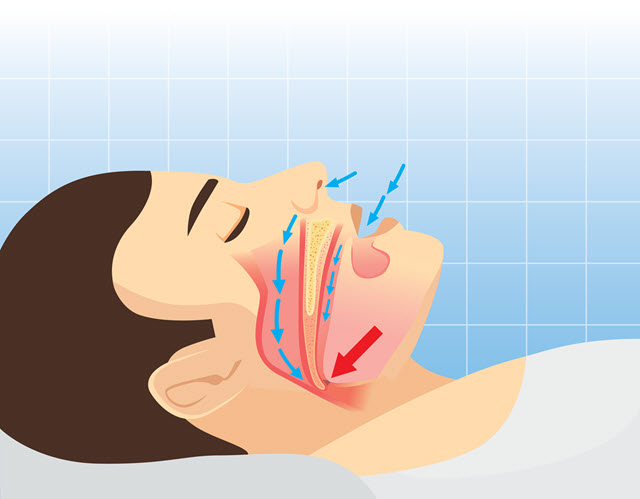Causes for Snoring
How to Decode Your Snoring Source
If you snore you could occasionally be the butt of jokes and it could be made light of. And this is okay if your snoring is infrequent and mild. But if your snoring is serious—instigated by sleep disorders or physiological features that obstruct your airway—then your nuisance snoring may not be so funny.

A wide assortment of environmental, physical and medical conditions can cause snoring. It’s important that you decode your particular source. If your snoring is regular it could be related to sleep apnea and that means you could need a physician’s intervention. Sleep apnea is more than loud snoring it is really an interruption in sleep cycle breathing—lack of oxygen to the brain being the serious component in the disorder. This is not to say that all instances of sleep apnea are serious—many are mild and relieved with behavioral and lifestyle changes.
Find out what causes your snoring, first.
Positional Snoring
A lot of people experience mild snoring when sleeping on their backs. Often their tongue or airway tissue can relax and collapse during breathing, resulting in snoring. A change in position either elevating the head or rolling over to your side is usually enough to fix the problem.
Obesity and Sleep
Obesity and relaxing sleep do not make good bed-fellows. If you carry excess weight it can seriously impede your breathing while you’re sleeping, leading to snoring AND sleep apnea. Most people with mild snoring and sleep apnea can relieve snoring with weight loss.
Physical Features that Increase Risk for Snoring
Because snoring is a collapse of restriction of the airway while sleeping a number of physical features can be causal, as well:
- Receding chin
- Enlarged tonsils
- Extra fatty airway tissue
- Large tongue
- Excess weight around the neck area
- Deviated septum
Situational Snoring
Some situations can lead to snoring:
- Cold, allergies, sinus infections – all of these can constrict nasal passages and make it difficult to breath, leading to minor and irregular bouts of snoring.
- A night of drinking – take in too much alcohol late at night and sleep on your back then snoring could be a feature of your sleep on that particular night. If you drink alcohol frequently before going to bed and have regular snoring you might try cutting back or eliminating alcohol entirely from your nightly routine.
Sleep Apnea Snoring
Snoring is one of the possible signs of sleep apnea. Not everyone who snores has this disorder, but frequently those that have sleep apnea also snore. In sleep apnea, sleep breathing occasionally stops due to an anatomically obstructed airway. Risks increase with obesity and some of the physical or anatomical features that can lead to snoring listed above. If you notice snoring mixed with choking, gasping or pauses in breathing in a bed partner make sure he or she talks to a doctor.
